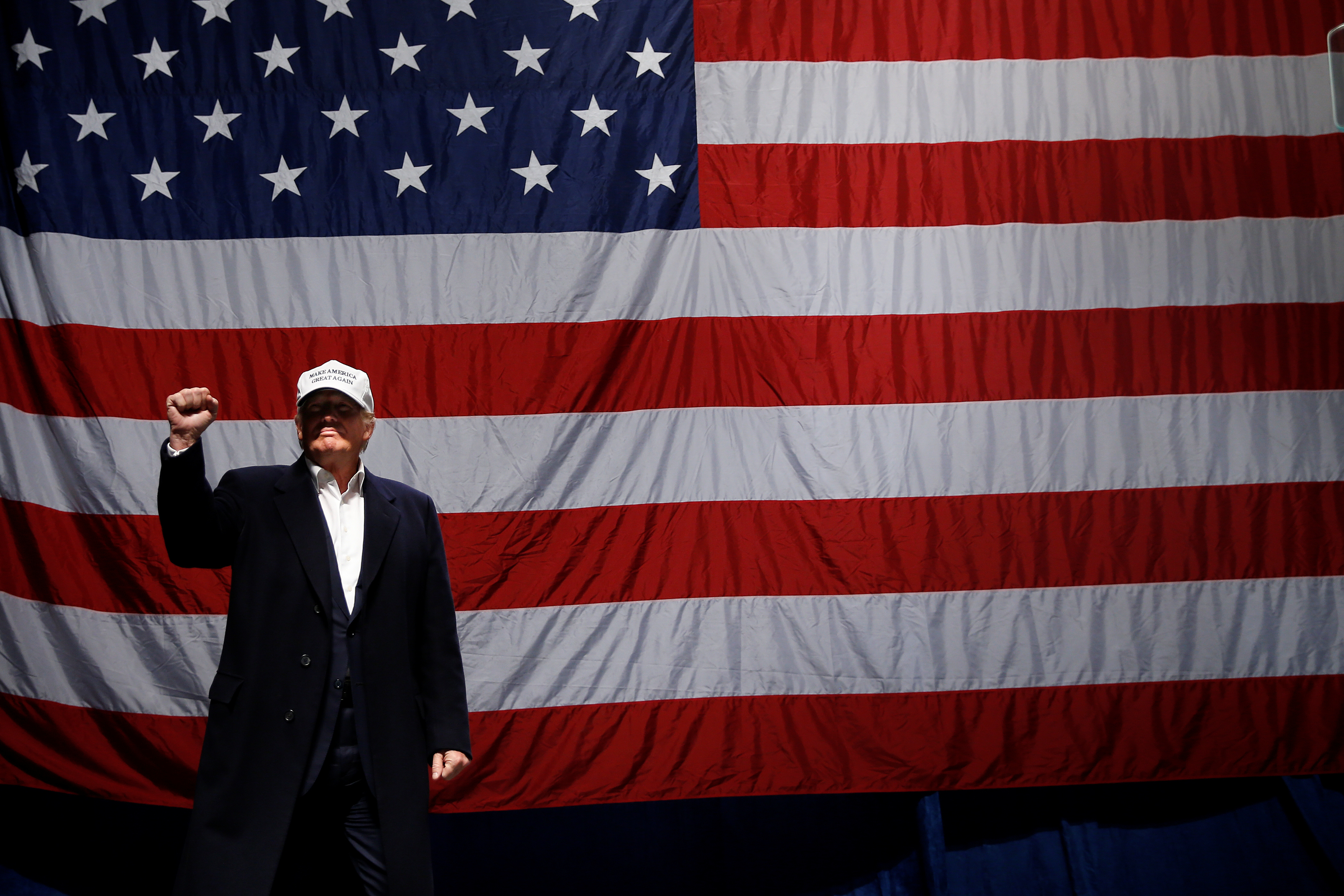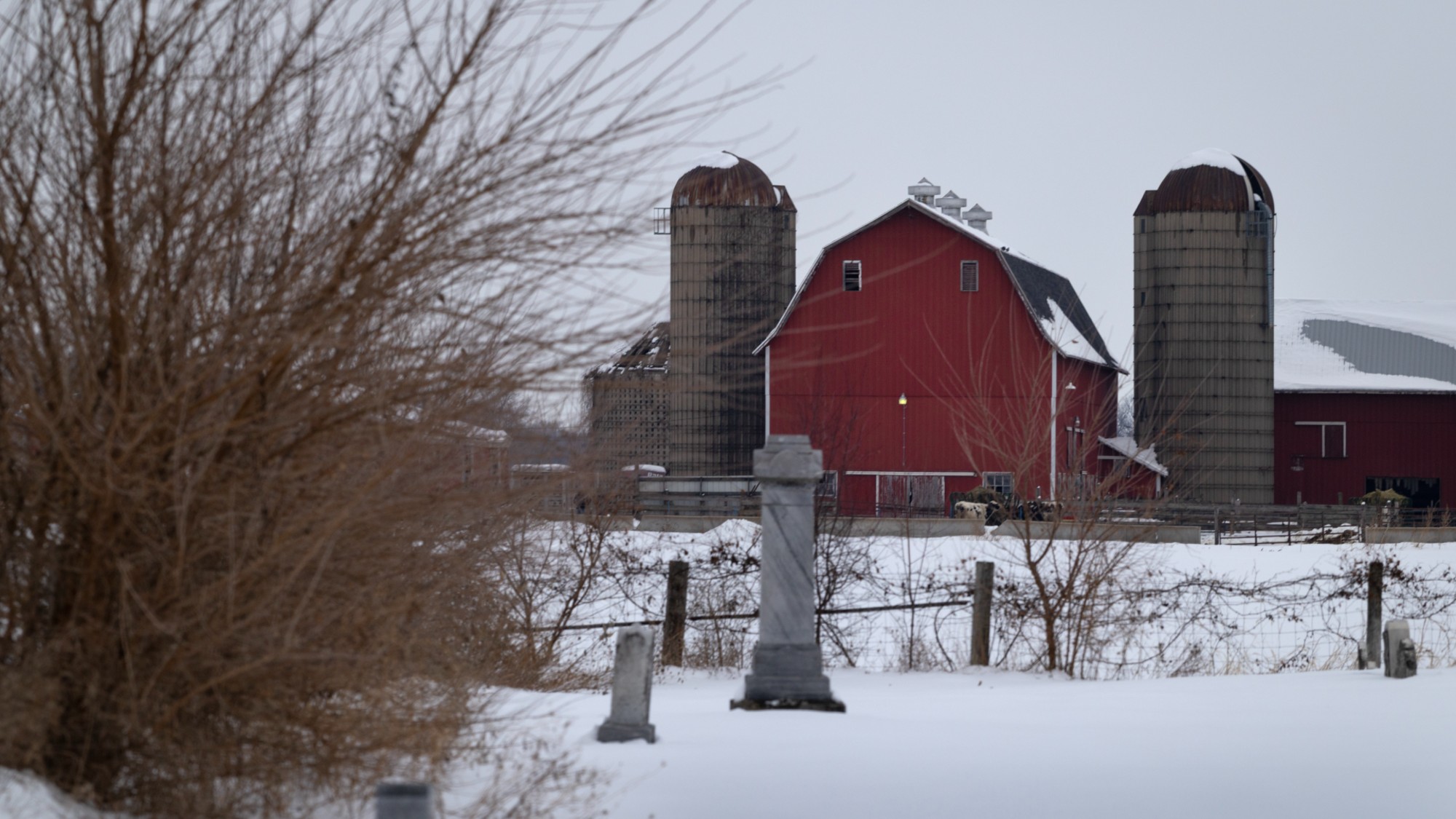What do nationalists want?
The new nationalists are winning the debate about the present. But what happens tomorrow?


The new nationalism in Europe and America is no longer rising. It has risen.
But what does this new nationalism stand for? What do the new nationalists who voted for Brexit and Donald Trump actually want? Up until now, they have been defined more by what and who they're against than by some motivating vision of what kind of world or nation they wish to create, or the kind of people they want to serve and be. And if they don't soon define what they stand for, these new nationalists could go down in history as just a severe irritant to the global order of the last three decades rather than as a living alternative to it.
The new nationalism has launched a biting critique of globalism. New nationalists charge that because elites are so committed to universalism in practice, globalism becomes anti-democratic. Globalists are committed to the ever-freer movement of goods, capital, and people. They are also for the further integration of a global political class, the better to act in concert on those goals. But these globalist goals are all promoted in an anti-democratic spirit. See the way that anti-EU results in national referenda are mooted by bureaucrats in Brussels. Or the way trade and immigration policies are absconded into the elite consensus of center-right and center-left parties, which partly insulates elites from public opinion.
The Week
Escape your echo chamber. Get the facts behind the news, plus analysis from multiple perspectives.

Sign up for The Week's Free Newsletters
From our morning news briefing to a weekly Good News Newsletter, get the best of The Week delivered directly to your inbox.
From our morning news briefing to a weekly Good News Newsletter, get the best of The Week delivered directly to your inbox.
There is something of a Marxism about the new nationalists. It's not just that they root for each other across national borders— see the way many Brexiteers supported Trump, and vice versa. It's the fact that the nationalists have all adopted a class-based analysis of their problems. They charge globalists with the sin of being a class. And they say that this class selfishly expands its own access to wealth and opportunity, then falsely assures itself of its own righteousness through its solicitousness of the interests of non-citizens. Meanwhile, their native middle classes rot in economic stagnation, social breakdown, drug abuse, and shorter life expectancies.
This nationalist critique of globalism is very compelling. But it also shows something missing within the new nationalism.
"Globalism" has a kind of logical motor within it. It starts with premises about the dangers of national conflict, cultural chauvinism, and prejudice (obvious enough), and then its egalitarian spirit almost automatically suggests an endless list of reforms for politicians, social activists, and artists to pursue as policymakers and propagandists — all to bring about a world less riven by unconstrained nation-states, private hierarchies, and parochial attitudes. Even if it never could (or dared) describe the final end state of history, this creative power within globalism touches on deep millenarian impulses in the Western mind, implanted in it by Christianity, and later adopted by Whigs and Marxists — namely, the idea of eternal human progress and moral arcs bending across the universe.
In a sense, globalism makes the job of the political class easy, as the goals of policy aren't to harmonize and reconcile diverse interests within their own society, but to reconcile their society to the direction of history itself. Corporate executives, politicians, and philanthropists all could announce some new initiative and say it was taking us a step closer to the world we all want. But this dream world is rather paradoxical. It is a world that finds safety by promoting diversity, but which considers all the conditions that made our diversity possible dangerous. It's a world in which everyone privately cultivates their own merits for a winner-take-all rat-race, but in which the only acceptable public spirit is puritanically egalitarian.
A free daily email with the biggest news stories of the day – and the best features from TheWeek.com
Maybe it is because they are new, but the new nationalists' ambitions are more inscrutable. We know they want to restrict immigration and preserve the nation-state. We know they want to restore sovereignty in the name of democratic legitimacy. But it's often confusing what much of this means in practice. When Stephen Bannon said that the U.S. withdrawing from the Trans-Pacific Partnership trade talks was "one of the most pivotal moments in modern American history," it was hard to make sense of exactly what he meant.
This lack of a forward-driving vision is characteristic even of some of the attempts of intellectuals to synthesize the new nationalist movement. The very promising debut of American Affairs contains some of the sharpest criticism of the post-1989 Western governing ideology around. But this pro-Trump journal is so far very short on prescriptions.
Is the new nationalism for cultivating national particularity? Does it believe that strong independent nation-states make us more peaceful? Is it for preserving the 20th century form of secularism and feminism from encroachment by radical Islam? France's Marine Le Pen in France and The Netherlands' Geert Wilders would say yes.
Or is the new nationalism for restoring a Christian identity and ethos to the West? Marine's niece, Marion Le Pen, and Polish nationalists in the Law and Justice party might say yes. Bannon, meanwhile, has said versions of all of these things to different audiences at different times.
We know that nationalists are against multilateral globalist trade deals, but not all of them are mercantilists. We know they are against political correctness, but we don't know if they are for restoring mid-20th century libertinism or if they are a creative pious remnant. In other words, this new nationalist movement does not yet have that suggestive power that globalism had.
Some conservatives might see that as a feature, a return to the age of real politics, of demands that are limited and negotiable, and away from the age of ideology. Better to see what works than to declare what must work. But we have gotten used to powerful ideologies over the past century and a half. Maybe ideology is natural to democracies. Maybe we want a sense of traveling through history as a story. It's easier to sell political ideas if the people have some idea of what lies at the end of the road. The new nationalists are winning the debate about the present. But what happens tomorrow?
Michael Brendan Dougherty is senior correspondent at TheWeek.com. He is the founder and editor of The Slurve, a newsletter about baseball. His work has appeared in The New York Times Magazine, ESPN Magazine, Slate and The American Conservative.
-
 Will Trump’s $12 billion bailout solve the farm crisis?
Will Trump’s $12 billion bailout solve the farm crisis?Today’s Big Question Agriculture sector says it wants trade, not aid
-
 ‘City leaders must recognize its residents as part of its lifeblood’
‘City leaders must recognize its residents as part of its lifeblood’Instant Opinion Opinion, comment and editorials of the day
-
 10 upcoming albums to stream during the winter chill
10 upcoming albums to stream during the winter chillThe Week Recommends As the calendar turns to 2026, check out some new music from your favorite artists
-
 Has Zohran Mamdani shown the Democrats how to win again?
Has Zohran Mamdani shown the Democrats how to win again?Today’s Big Question New York City mayoral election touted as victory for left-wing populists but moderate centrist wins elsewhere present more complex path for Democratic Party
-
 Millions turn out for anti-Trump ‘No Kings’ rallies
Millions turn out for anti-Trump ‘No Kings’ ralliesSpeed Read An estimated 7 million people participated, 2 million more than at the first ‘No Kings’ protest in June
-
 Ghislaine Maxwell: angling for a Trump pardon
Ghislaine Maxwell: angling for a Trump pardonTalking Point Convicted sex trafficker's testimony could shed new light on president's links to Jeffrey Epstein
-
 The last words and final moments of 40 presidents
The last words and final moments of 40 presidentsThe Explainer Some are eloquent quotes worthy of the holders of the highest office in the nation, and others... aren't
-
 The JFK files: the truth at last?
The JFK files: the truth at last?In The Spotlight More than 64,000 previously classified documents relating the 1963 assassination of John F. Kennedy have been released by the Trump administration
-
 'Seriously, not literally': how should the world take Donald Trump?
'Seriously, not literally': how should the world take Donald Trump?Today's big question White House rhetoric and reality look likely to become increasingly blurred
-
 Will Trump's 'madman' strategy pay off?
Will Trump's 'madman' strategy pay off?Today's Big Question Incoming US president likes to seem unpredictable but, this time round, world leaders could be wise to his playbook
-
 Democrats vs. Republicans: who are US billionaires backing?
Democrats vs. Republicans: who are US billionaires backing?The Explainer Younger tech titans join 'boys' club throwing money and support' behind President Trump, while older plutocrats quietly rebuke new administration
